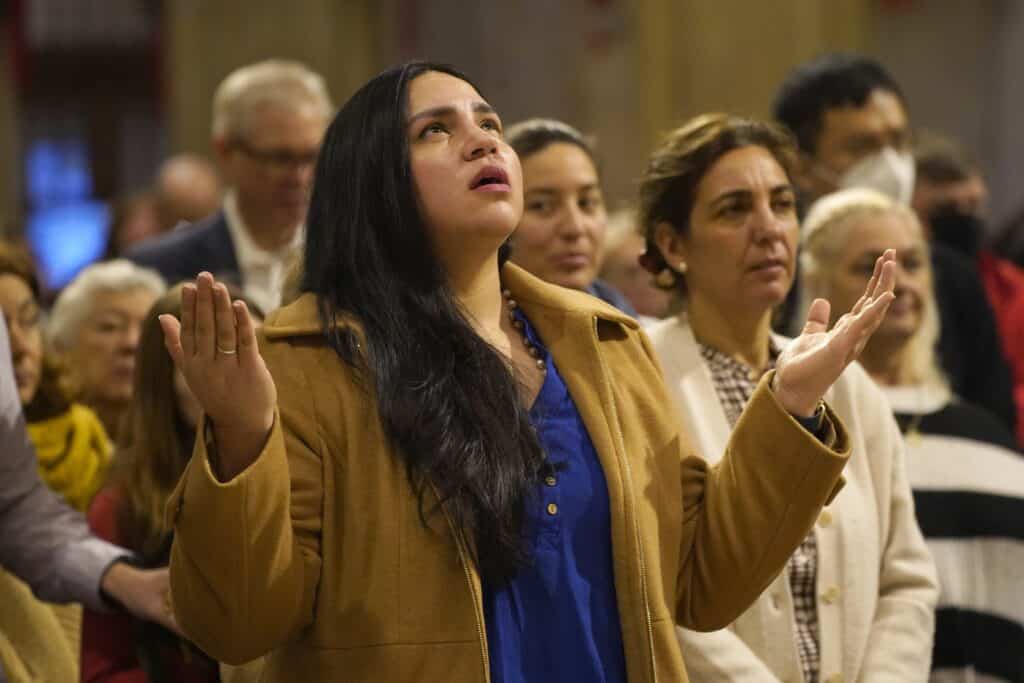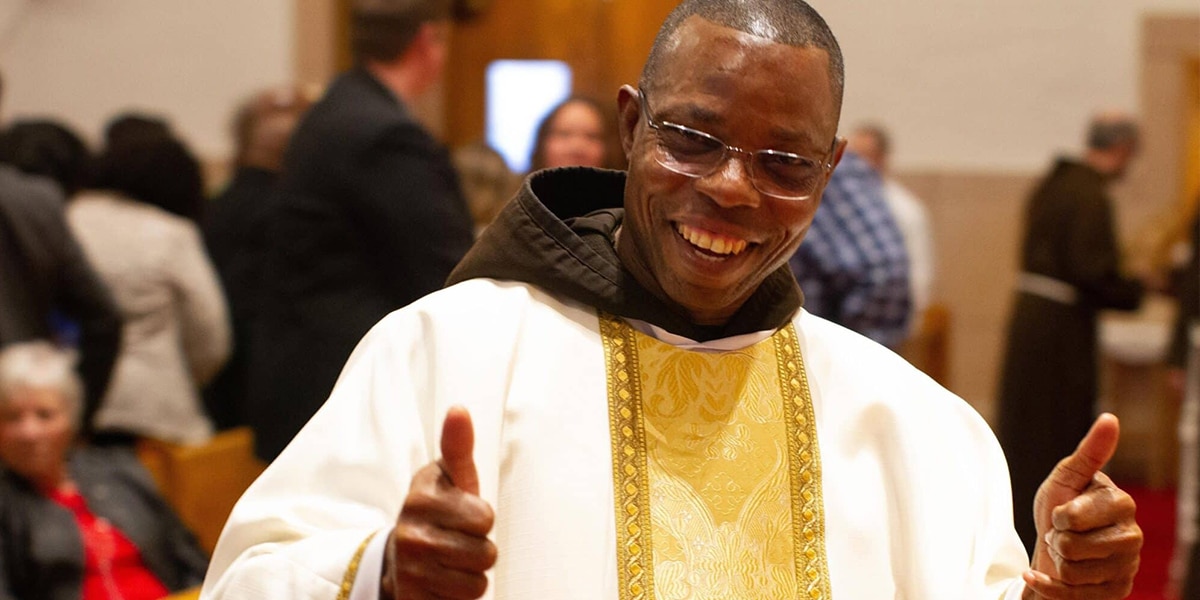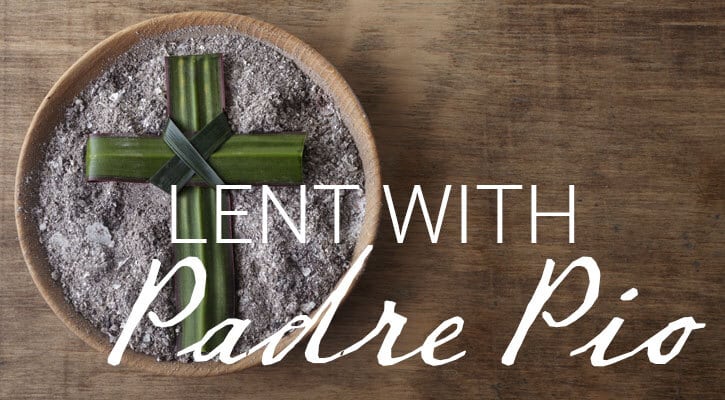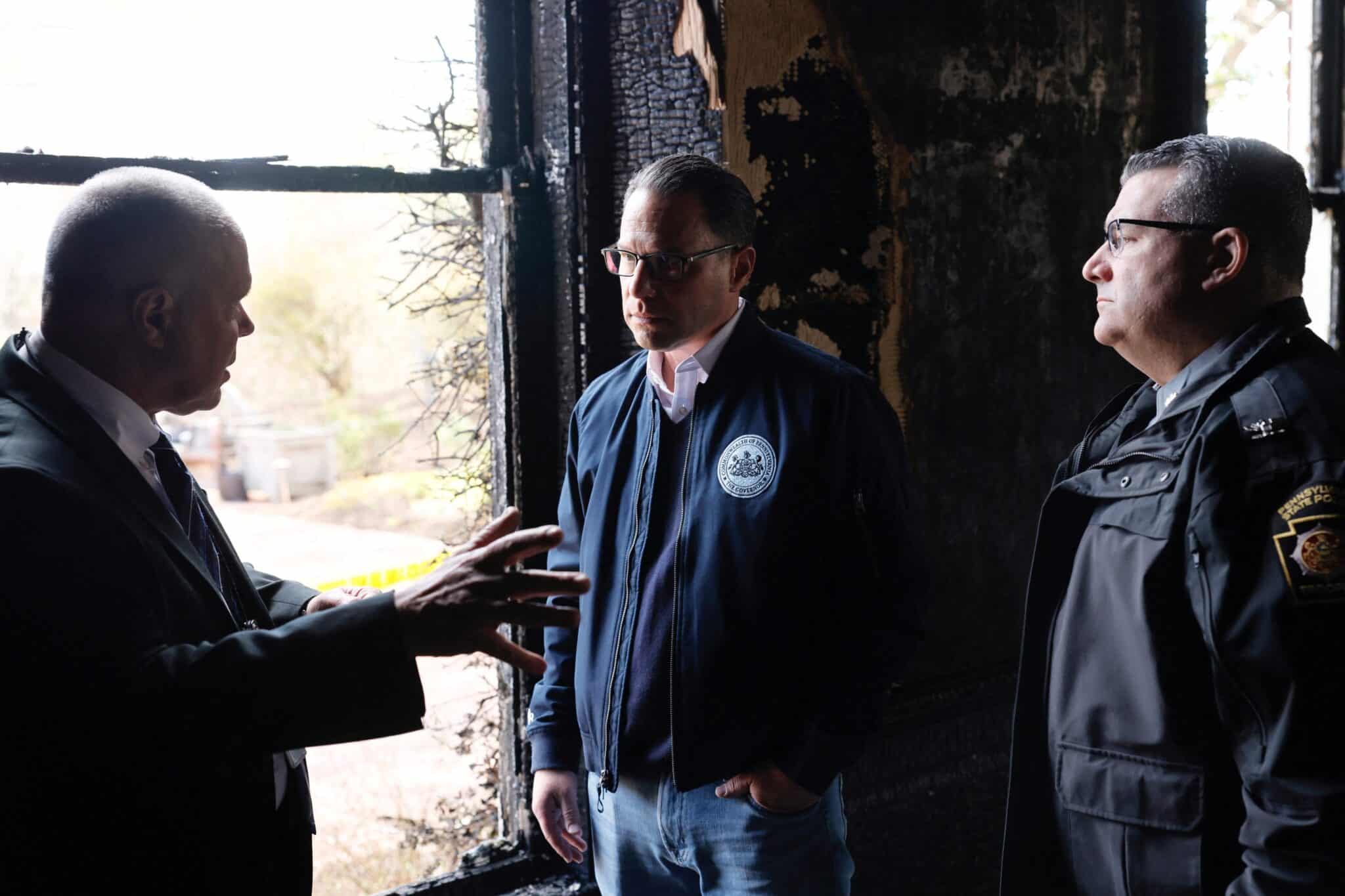A culture of hospitality helps parishes grow and thrive.
In 2008, I visited St. Gerard Majella Church in the Diocese of Brooklyn in New York. The greeter warmly welcomed me and I took a seat. The bulletin had an entire column devoted to welcoming the newcomer and contained a coupon to fill out if one wanted more information about church membership. I filled it out and dropped it in the collection basket.
The pastor, Father Ed Doran, began his homily by asking anyone attending the church for the first time to please stand up to be recognized (certainly not according to the rubrics, but a nice touch, nevertheless). When I stood up, parishioners clapped and an usher approached me, giving me an informational packet about the church and its ministries.
“For my entire priesthood, I have believed in the importance of hospitality,” said Father Doran.
Following the petitions, the parish prayed “A Prayer for Hospitality” from the US Conference of Catholic Bishops’ (USCCB) 2000 document Welcoming the Stranger Among Us: Unity in Diversity. As I was new, this was a strange prayer for me. I noticed people reading from the missal, which I started leafing through to find the proper page. The lady next to me noticed my struggle and, with a very warm smile, pointed to the back of the missal where the prayer was taped. It is one thing to be greeted by the pastor, but to have the person in the pew next to you make you feel welcome—now that gets your attention.
During the exchange of peace, many people approached me to welcome me to the parish. It was almost overwhelming. After Mass, more people approached and welcomed me, including Father Doran, who made a point of warmly greeting me.
This was already a “wow” experience of hospitality, way beyond anything I had previously experienced in any Catholic church. But then at 2 p.m. that same day, my phone rang. It was Father Doran personally responding to the coupon I had put in the collection, requesting further information about church membership. Clearly, this was a parish and pastor who lived the vision of Welcoming the Stranger Among Us.
“Hospitality is but one of the imperatives flowing out of our baptismal call, clearly mandated by Scripture, and is a present-day goal of our bishops,” says Father Doran, now pastor of St. Charles Borromeo Parish in Brooklyn Heights, New York.
Unwelcome Circumstances
Is this experience common in our parishes? Sadly, it is rare, indeed. Too often, the typical experience of parish newcomers is to feel as if they are invisible, as if their presence makes absolutely no difference to anyone. Too many greeters welcome only those they know and avert their eyes from strangers. Sometimes, visitors feel downright unwelcome, as when they get a dirty look from someone because they are sitting in “their” pew. And then rarely—all too rarely—newcomers are made to feel welcome in our churches.
Sally Sackett, a lifelong member of St. Stephen Parish (both the parishioner’s name and the names of the parishes involved have been changed at the parishioner’s request), felt this tension firsthand when her parish closed in 2009.
“The day that parish closed a part of me died,” she recalls. Parishioners were told to go to the neighboring parish, St. Augustine. Being a faithful Catholic, she did as she was told. “I went to St. Augustine’s the following Sunday,” she says. “I was made to feel so unwelcome that I decided I was done with the Catholic Church entirely.”
Weeks later, a friend at work invited her to attend a Sunday service at Our Father’s House, a nondenominational Christian community. “I felt so overwhelmingly and genuinely welcomed into that community that I knew instinctively I had found my spiritual home,” she says.
Many of those who have had their church closed describe it as feeling like a death in the family. This is certainly understandable, considering the relationships and sacred memories that are attached to parish communities. To have one’s church closed is traumatic enough, without having that trauma compounded by being made to feel invisible or outright unwelcome in a new parish. A multitude of good works done by church leadership to heal the pain of a church closure can be undone quickly with one dirty look, for whatever reason, in the new parish.
“Growing up in the pre-Vatican II Church, welcoming and hospitality were not priorities for the Church at that time, ” says Father Danny Murphy, pastor of St. Saviour Parish in the Diocese of Brooklyn.
“People went to church to experience God through the sacrament, not each other.” In 2001, Father Murphy attended a conference on the best practices of successful, growing faith communities. “What came through loud and clear is that many former Catholics are today in nondenominational Christian churches solely because of the welcoming and hospitality they experienced. I was set on fire by that,” he says.
“Father Murphy gets it, the new evangelization,” says Geri Anne O’Beirne, a 10-year parishioner at St. Saviour. “We’ve got people coming from all over Brooklyn to attend our church because they feel welcome here. Father Murphy frequently gets letters from people thanking him for our monthly Hospitality Sunday.”
The parish has a designated “Hospitality Sunday” on the third Sunday of the month, excluding July and August, in which newcomers are invited to the church hall for refreshments and to meet other parishioners after each Mass. Following the 7 p.m. Mass, which is geared toward young adults, they play board games.
Pope Benedict XVI, in his papacy, emphasized the theme of new evangelization. In September 2010, he established the Pontifical Council for Promoting New Evangelization and commissioned it with the task of re-evangelizing traditionally Christian countries. He also announced that “new evangelization” would be the theme of the World Synod of Bishops, to be held at the Vatican this October. It seems that the most basic element of this new evangelization is creating more welcoming communities. Pope Francis is furthering that cause.
“What good would it do to go door-to-door inviting people to attend our churches if what they found when they arrived were less than welcoming and hospitable communities?” asks Dr. William Pickett, retired director of pastoral planning for the Diocese of Rochester and author of A Concise Guide to Pastoral Planning. “Clearly, the foundation to any evangelizing efforts needs to be creating more welcoming parish communities.”
Welcome Benefits
Beyond the very real current need to welcome Catholics displaced by church closings and parish mergers, why should we work toward creating more welcoming parish communities? Our more than 4,000-year tradition of welcoming the stranger provides some examples. From Abraham welcoming the three strangers (Genesis 18:1-8) to Jesus telling us that “I was… a stranger and you welcomed me” (Matthew 25:35) to the US bishops reminding us of the importance of welcoming the stranger in our midst, we have been consistently exhorted to practice hospitality in our lives and certainly in our churches.
Even though we should do this simply because it is the right thing to do, Scripture tells us of the benefits we receive when we welcome the stranger. The widow and her son were rewarded for sharing the last of their meager rations with Elijah (1 Kings 17:7-16), and Jesus even indicates that our final accounting before God will include, in part, the extent to which we welcomed the stranger (Matthew 25:35).

“Our churches need to become spiritual centers, which benefit both the community in which they are located and the parishioners they serve, ” says Father Doran. “And this begins with welcoming and hospitality.”
“When I think about hospitality, I think about the story of Martha and Mary,” says O’Beirne, who for the past two years has been the coordinator for youth and family ministry at St. Saviour. “Martha was running around preparing for their honored guest, while Mary was personally attending to Jesus, their honored guest.”
The Parish Process
In April 2008, almost 1,200 priests, deacons, vowed religious and lay ministers took part in a national summit to discuss the findings of the Emerging Models of Pastoral Leadership project. This report identified that one of the key marks of excellent parishes is that they are welcoming communities. At the same time, pastoral leaders surveyed by the project reported that having welcoming communities was one of the areas in which parishes were least successful. Our parishes will grow and thrive when we practice hospitality. With increased numbers of parishioners, our collections will increase and we will have more people available to contribute their time and talent toward parish ministries. More hands make light work.
“Hospitality and welcoming are keys to a door that opens many possibilities,” says Father Doran. “The possibilities and potentialities it opens are full, active participation of those attending our liturgies and an increase in the time, talent and treasure (stewardship) that parishioners are willing to contribute to a welcoming parish.”
If you asked committed members of a parish what was important to them, they would undoubtedly say, “We want to be a welcoming place.” But most parishes have never thought about, talked about or planned how this will happen.
Creating a culture of hospitality in today’s parishes will require extensive catechesis, deliberate planning and careful implementation. Becoming a welcoming parish is a process, not an event. Since the circumstances of each parish are unique, there is no “one size fits all” plan for growing into a welcoming parish.
“A pastor needs to begin with a small group,” explains Father Doran,”and build enthusiasm for hospitality and welcoming, both within this group and in the entire parish.”
In 2008, the Diocese of Brooklyn decided to embark on a pilot project to create more welcoming parishes. Six parishes agreed to be a part of the program. Father Murphy and Father Doran were among those pastors who jumped at the chance to deepen and increase their parishes’ commitment to hospitality and welcoming.
“We have to constantly look for ways to concretize hospitality for the parish,” says Father Doran. Hand-picked parish teams were trained in the process (see sidebar) and were sensitized to the importance of welcoming the stranger. Parishes were assessed through various means as to their welcoming practices both before and after implementing the process so that the effects, if any, of these efforts could be measured.
Three important conclusions were drawn from this yearlong pilot project: There was a significant increase in weekly revenue of parishes that participated in the program (one as high as 70 percent). This is even more astounding given that this study was done in the midst of the economic collapse of 2008, which hit Brooklyn and the New York City area particularly hard.
The exact process followed is not as important as the intention and commitment to create a more welcoming community. Each parish adapted the process differently and most improved the welcoming of their communities, as determined by independent assessment.
The support and action of the pastor is crucial to the success of any welcoming effort. Parishes have a hard time transcending the limitations of their pastors, so without the pastor’s active support, the potential success of this process is greatly restricted, perhaps impossible.
Clearly, it is God’s fervent wish for us to create welcoming parish communities. Wherever hospitality is practiced out of gratitude, the face of a loving, caring, accepting God is made manifest, appealing to those yearning for a faith community that they can call home.
Six Tips for Becoming a More Welcoming Parish
Although each parish has a unique set of circumstances it works in, here is a rough outline of one possible spiritual process a parish can employ to develop and implement a strategy to become a more welcoming community.
1. Assemble and train a parish team. This team, assembled by the pastor or his designee, should consist primarily of parishioners with appropriate staff support. Bulletin articles and announcements at the end of Mass can be used to recruit team members, but the pastor could also personally invite influential, active members of the parish who he believes would be well-suited for this team.
2. Develop a communication plan to keep the entire parish informed. The process needs to be transparent, engaging and consistent—one sermon or bulletin article is not enough.
3. Assess the current reality of welcoming in the parish. Have an observer attend all the weekend Masses and report on his/her experiences as a newcomer. Focus on three key areas of welcoming: the facility, the bulletin and website (if any) and specific workshop experiences. Survey current active parishioners on their opinions of the parish as a welcoming community.
4. Discern God’s vision for welcoming strangers in the parish. Pray for the gift of the Holy Spirit’s perspective. How might God expect you to act to people new to your parish?
5. Develop a plan for bringing God’s vision and reality into alignment. Create a plan specific to your own parish and then research successful welcoming programs employed by other parishes.
6. Implement the plan, measure the results and continually improve. Conduct a second full assessment of reality after a specific time period to see what impact the plan has had on the welcoming of the parish.








